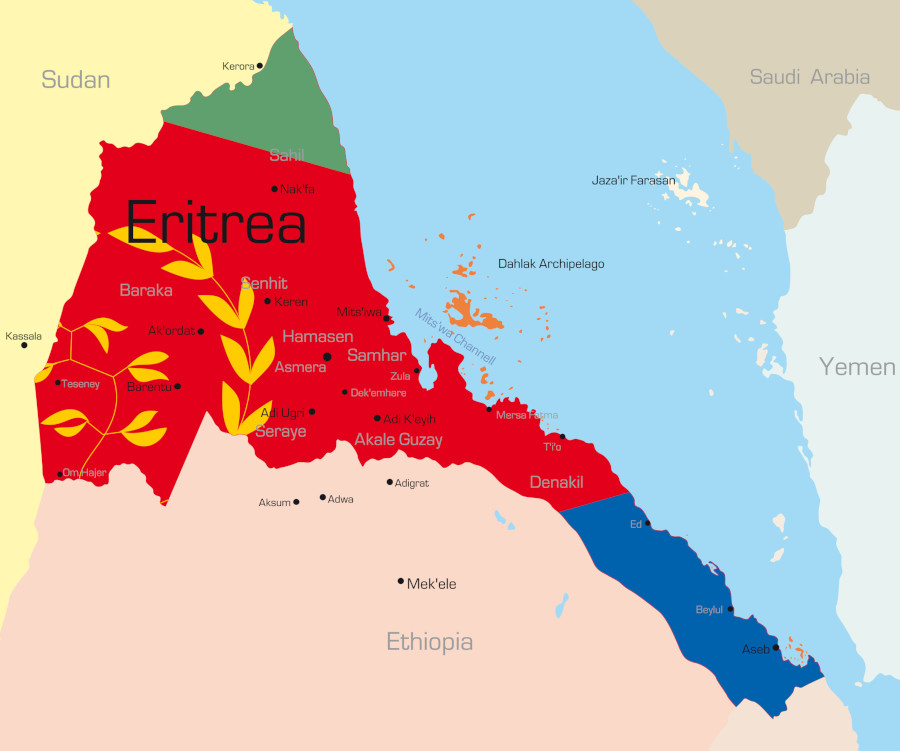Eritrea Joins The Belt And Road Initiative
By Chris Devonshire-Ellis
The north-east African country Eritrea has signed an MoU with China to join the Belt And Road Initiative. The MOU was signed on November 25 by the Chinese Ambassador Cai Ge and Eritrea’s Foreign Minister Osman Saleh. Eritrea is strategically important as it has access to the Red Sea, the Suez Canal and to Europe, as well as to waters in the Arabian Gulf and on towards the Indian Ocean.
The country covers 117,600 square kilometres, with an estimated population of 4.5 million. The national GDP is about US$6.4 billion (PPP) with a GDP per capita of about US$2,000. The economy depends mainly on agriculture, although some industrialization is taking place. Eritrea’s main agricultural products include sorghum, millet, barley, wheat, legumes, vegetables, fruits, sesame, linseed, cattle, sheep, goats, and camels. Remittances sent back to Eritrea from abroad by overseas labourers account for about 32% of GDP and remain an important part of the economy with many being based in the Gulf. What needs to happen is to gradually bring that trained labour back to Eritrea to develop infrastructure in their own country and wean it off an agricultural base to a higher standard of industrialisation. China’s involvement will also help stabilise the country, as China’s relations with neighboring Ethiopia are also important to Beijing. Ethiopia and Eritrea have had an on-going conflict for several years with occasional flare ups. Beijing will be putting pressure on both to find solutions.

Eritrea’s cooperation is expected to cement China’s presence in the Horn of Africa and the Red Sea, with interests ranging from a military base to protect shipping, in addition to infrastructure projects in ports and railways.
China has been investing in the country for some time. In late 2019, the China Shanghai Corporation for Foreign Economic and Technological Cooperation (SFECO) began construction of part of the 500 km road connecting Eritrea’s Massawa and Assab harbours, both of which possess Special Economic Zones.
However, Eritrea is not yet a member of the African Continental Free Trade Agreement (AfCFTA) which has eliminated border tariffs between all other African nations. This can probably be expected to change with Chinese influence and desire to see trade increase – China’s exports to Eritrea were just US$71 million in 2020, and Eritrean exports negligible, partially due to the Ethiopian conflict. Nonetheless, the country retains its strategic importance on the Red Sea.
Related Reading
About Us
Silk Road Briefing is written by Dezan Shira & Associates. The firm has 28 offices throughout Asia, and assists foreign investors into the region. For strategic advisory and business intelligence issues please contact the firm at silkroad@dezshira.com or visit www.dezshira.com





